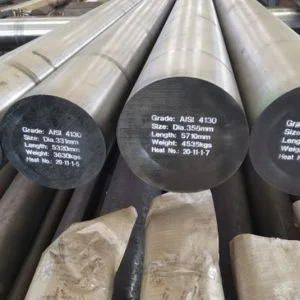Introduction

Alloy tool steels are essential materials in various industrial applications, prized for their exceptional hardness, wear resistance, and toughness. This blog explores the top uses of alloy tool steel across different sectors, highlighting their critical roles in enhancing productivity and efficiency.
Properties of Alloy Tool Steel
Alloy tool steels are characterized by their composition of alloying elements such as chromium, vanadium, and tungsten, which impart superior properties compared to carbon steels. The key properties include high hardness, excellent wear resistance, good toughness, and the ability to withstand high temperatures and loads.
Automotive Industry
In the automotive sector, tool steels find extensive use in manufacturing components like crankshafts, gears, and camshafts. Their high hardness and wear resistance ensure durability and reliability under challenging conditions, contributing to the performance and longevity of vehicles.
Tool and Die Making
Tool and die makers rely on tool steels for producing molds, dies, and cutting tools. These steels can maintain sharp cutting edges and withstand repetitive use without significant wear, making them indispensable in precision machining and manufacturing processes.
Aerospace Applications
Alloy tool steels play a crucial role in aerospace applications, where components must endure extreme temperatures, high stresses, and corrosive environments. They are used in turbine blades, landing gear components, and structural parts due to their combination of strength, toughness, and heat resistance.
Construction and Infrastructure
In construction and infrastructure projects, tool steels are employed in heavy machinery parts, such as excavator buckets, drill bits, and hydraulic components. Their ability to withstand impact and abrasion ensures reliability and extends the operational life of equipment.
Oil and Gas Industry
In the oil and gas sector, tool steels are utilized in drilling tools, valves, and pumps. These components operate in harsh conditions involving high pressures, corrosive fluids, and abrasive environments, necessitating materials that offer both strength and resistance to wear.
Medical and Surgical Tools
Alloy tool steels are also essential in the medical field for manufacturing surgical instruments and implants. Their biocompatibility, combined with high hardness and edge retention, ensures precision and reliability during surgical procedures, contributing to patient safety and healthcare efficiency.
Consumer Goods and Electronics
In consumer goods and electronics manufacturing, tool steels are used for producing precision components such as molds for plastic injection molding, cutting tools for electronics fabrication, and high-precision parts for consumer electronics. Their dimensional stability and wear resistance are critical for maintaining product quality and performance.
Applications of Alloy Tool Steel

| Industry/Application | Components/Tools Produced |
|---|---|
| Automotive | Crankshafts, gears, camshafts |
| Tool and Die Making | Molds, dies, cutting tools |
| Aerospace | Turbine blades, landing gear, structural parts |
| Construction | Excavator buckets, drill bits, hydraulic components |
| Oil and Gas | Drilling tools, valves, pumps |
| Medical/Surgical Tools | Surgical instruments, implants |
| Consumer Goods/Electronics | Molds for plastic injection, cutting tools, precision parts |
This table illustrates the versatility of alloy tool steels across various industries and applications.
Conclusion
Alloy tool steels are versatile materials that play a pivotal role across diverse industries due to their exceptional mechanical properties and reliability in demanding applications. Whether in automotive manufacturing, aerospace engineering, or medical instruments, these steels continue to drive innovation and efficiency, contributing to technological advancements and enhancing product performance.
FAQ
Q: What are the alloying elements commonly found in alloy tool steels?
A: Chromium, vanadium, and tungsten are among the key alloying elements used to enhance the properties of alloy tool steels, such as hardness, wear resistance, and toughness.
Q: Why are alloy tool steels preferred in tool and die making?
A: Alloy tool steels maintain sharp cutting edges and withstand repetitive use without significant wear, making them ideal for producing molds, dies, and cutting tools.
Q: Where else are alloy tool steels used besides industrial applications?
A: Alloy tool steels are also utilized in consumer goods, electronics, and medical instruments due to their high hardness, wear resistance, and dimensional stability.
